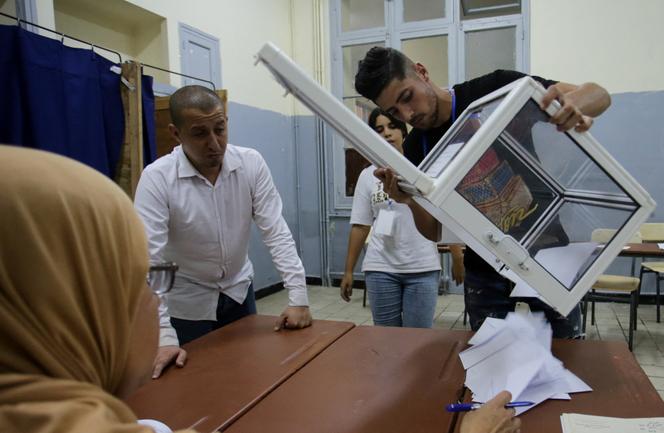


Two days after Algeria's early presidential election, held on September 7, the National Independent Authority for Elections (ANIE) became the scapegoat for all the candidates' ire, including the declared winner, incumbent president Abdelmadjid Tebboune. The election was marred by an unprecedented abstention rate and a great deal of confusion over voter turnout figures.
According to the proclaimed figures, Tebboune won 94.65% of votes cast. Abdelaali Hassani Cherif, of the Islamist Movement of Society for Peace (MSP) party, was credited with 3.17% of the vote, and Youcef Aouchiche, of the Socialist Forces Front (FFS), with 2.16%. However, against all expectations, before midnight on Sunday, September 8, the three candidates' campaign managers, in a joint statement, denounced "irregularities and contradictions in the results announced," expressing their willingness to "inform public opinion of the vagueness and contradictions in the turnout figures."
Probably concerned with concealing the extent of popular disaffection, Mohamed Charfi, the president of the ANIE, had taken a few liberties with transparency by announcing an "average participation rate" of 48.03%, based on the participation rates in the wilayas (states) divided by their number, 58. In reality, the turnout rate is probably less than 25%, based on the number of votes cast, 5,630,196, divided by the number of registered voters, 24,351,551 (the number of invalid or blank ballots was not provided).
On Monday, the two defeated candidates went on the offensive again, accusing the ANIE of "manifest fraud" and announcing their intention to lodge appeals with the Constitutional Court. The stakes are financial ones: Due to having obtained less than 5% of the votes cast, they will not be reimbursed for their campaign expenses. It's also a political issue, as the ANIE's aim in reducing their scores, explained analyst Nadjib Belhimer, would be "to mitigate the impact of abstention, even if this in no way changes the results."
The sheer scale of voter abstention, the main issue at stake in the election, came as a surprise, even to Tebboune's camp. The president was expecting turnout to be at least higher than for the December 2019 presidential election (less than 40%), which had already left him a president struggling for legitimacy.
To justify their candidacies in an election that was already a foregone conclusion, the two defeated candidates spoke, at a press conference, of "threats" to the country, without being able to specify them. In the same vein, shortly after the results were announced, the Algerian news agency APS issued a more targeted, but already tried-and-tested attack on the French media, accused of "conveying untruths": "[Algeria is] on the road to emergence, a far cry from the colony of misery from which you were driven... This choir should make the effort to recognize that Algeria is much better off than France."
You have 31.79% of this article left to read. The rest is for subscribers only.
